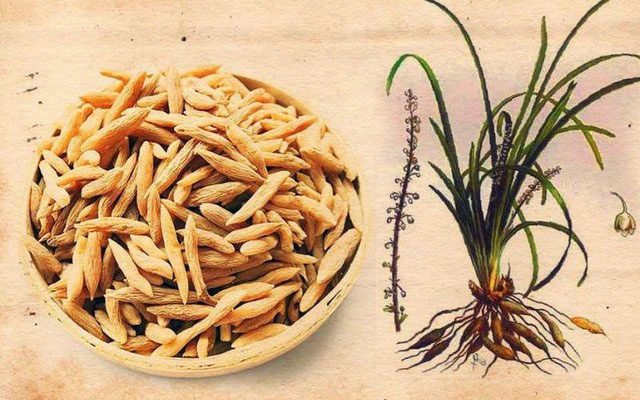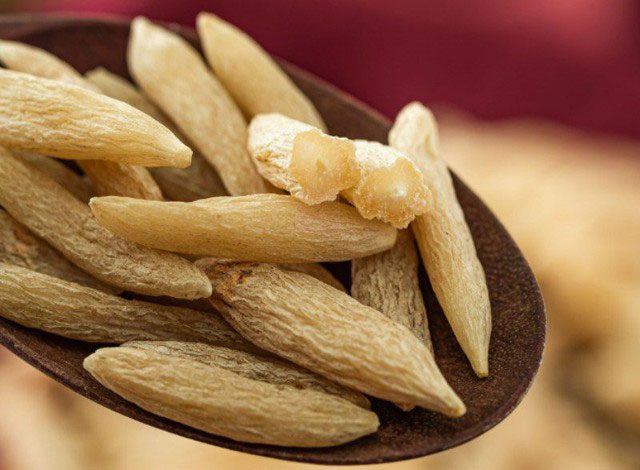This root is used in traditional medicine and offers numerous health benefits.
Ophiopogon or Ophiopogon japonicus is a herbaceous plant that grows to a height of about 10-40 cm and is typically green in color. This plant grows wild and is cultivated in Vietnam for its tubers, which are used to treat various common ailments. The tuber roots of Ophiopogon have a round shape, with a white-yellow skin and flattened ends. These tubers are harvested when the plants are 2-3 years old in June and then dried before use.

This plant grows wild and is cultivated in Vietnam for its tubers used in medicine.
According to ancient texts, Ophiopogon has a sweet, slightly bitter taste and a cooling nature, affecting the heart, lungs, and spleen meridians. It is used in traditional remedies to alleviate constipation, reduce symptoms of coughing up blood, and manage prolonged or phlegmy coughs. Additionally, this tuber has several notable benefits that many may not be aware of:
1. Cancer Prevention
Modern medicine has discovered the cancer-preventing properties of Ophiopogon. A study conducted in 2023 showed that extracts from this herb, such as ruscogenin – 1 – O – β – d – fucopyranoside (DT-13), ophiopogonin B, and ophiopogonin D, have potential anticancer effects by inducing cell cycle arrest, activating apoptosis, and inhibiting metastasis and angiogenesis.
Another study in 2020 indicated that a type of saponin called ruscogenin found in the roots of Ophiopogon significantly inhibited the viability of pancreatic cancer cells and induced cell death in vitro.
2. Blood Sugar Regulation

Ophiopogon slows kidney fibrosis in diabetic patients.
Research from Shanghai University of Traditional Chinese Medicine has shown that Ophiopogon is an effective herb for lowering blood sugar levels. It helps diabetic patients restore pancreatic function and reduce insulin resistance, thereby aiding in blood sugar reduction. Furthermore, this herb significantly helps lower triglycerides and bad cholesterol, thus preventing cardiovascular complications in diabetic patients.
3. Beneficial for Kidneys
In addition to effectively controlling blood sugar, Ophiopogon also slows the rate of kidney fibrosis in diabetic patients, potentially preventing kidney complications.
One study indicated that ophiopogonin D—the main pharmacologically active component of Ophiopogon—improves kidney function, evidenced by increased albumin and creatinine clearance; decreased serum creatinine, blood urea nitrogen, TGF-β1, and renal hypertrophy in diabetic kidney disease mice.
Although Ophiopogon is a widely used and popular medicinal herb, it is essential to only use this herb under the guidance and prescription of a qualified professional to ensure health safety.


















































